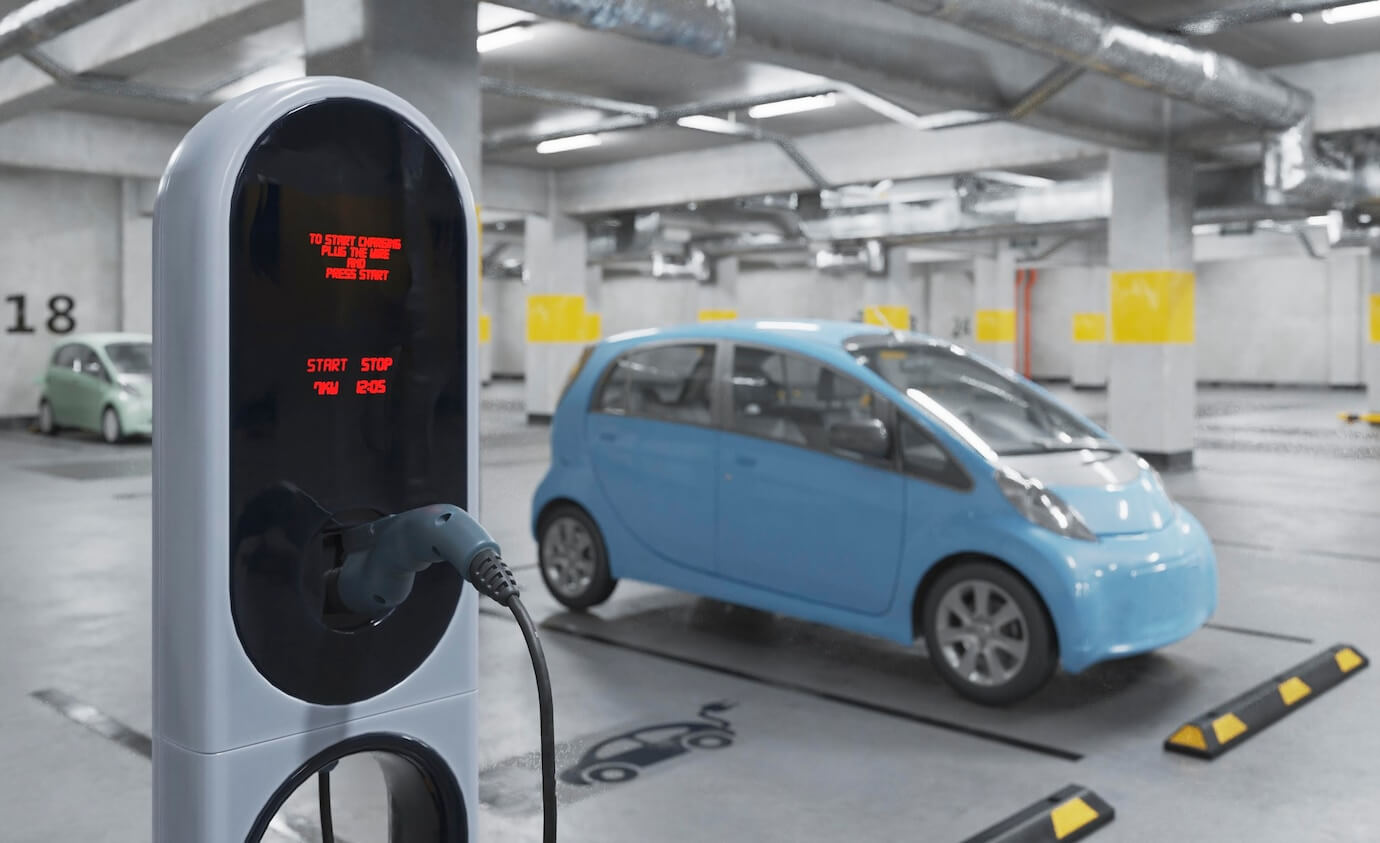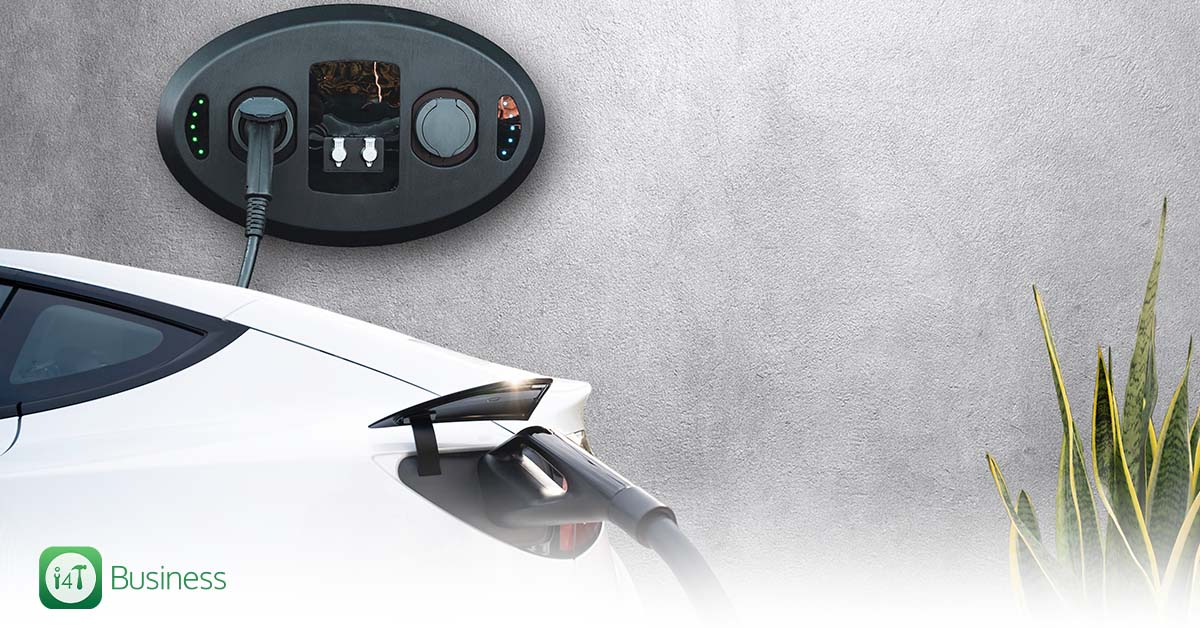EVs are quickly catching on but are charging stations keeping up as well? The short answer is ‘no’, primarily due to the confusion surrounding EV Charger installation.
If you are someone seeking to install an EV charger at home or workplace, you will be faced with a lot of uncertainty. Questions will arise pertaining to infrastructure needs, getting connected with a trusted supplier, keeping up with the regulatory requirements and deciding who will pay for it and how.
So we decided to debunk the confusion surrounding EV home charger installation.
Let’s sort out some common confusions causing delayed EV charger installation, whether you are planning to get one for your home, your employees or the EV owners occupying a residential or commercial building that you manage.
1. Finding and connecting with a certified EV installer with an end-to-end process

Buying an EV is one thing. Finding a qualified, certified and trusted supplier to install a home EV charging unit, is a different story altogether. Your electric vehicle is a significant investment. You do not want to put it at risk by plugging it into an incorrectly installed or unsafe charger.
While most EV manufacturers provide buyers a list of certified suppliers to choose from, the post sales experience ends just there. The journey to get a charging solution is full of roadblocks. EV owners are left on their own. They are required to select the best supplier, get a quote, follow up on progress and pay for the completed job.
Manufacturer approved EV Charger installers using i4T Business significantly benefit by providing their consumers with an end-to-end experience.
On the other hand, EV buyers can verify installers credentials, select a suitable supplier, request as many quotes as they like, track the EV charger installation process from start to finish and pay their supplier right from their i4Tradies app.
2. Settling the debate over provision of workplace EV chargers, once and for all
EV Charging is quickly transforming from a job perk to a standard expectation, with more people switching from gas guzzling vehicles to electric ones.
However, decision makers argue that if you do not install a petrol pump at a workplace for employees owning traditional cars, why should it be any different for EV owners?
Nonetheless, the decision is not as confusing as it may seem. Businesses that choose to install EV charging stations at their workplace:
- Eventually appeal to the eco-conscious employees who do not have the luxury of installing EV chargers at home.
- Attract more customers and visitors.
- Meet their business’ sustainability goals and live up to their social responsibility towards the community.
- Ultimately make more money.
It is a definite win-win, especially given the government grants in most regions. These grants cover a majority of the charge point installation expense for businesses.
3. Vagueness with respect to changing EV charger installation regulations

However, from a consumer point of view property owners are confused if provision requirements need to meet the bare minimum or go above and beyond compliance when it comes to installing EV chargers at home or work.
These regulations pertain to:
- Mandatory EV charger installation in newly constructed buildings
- Involvement of different parties in the installation of EV chargers, such as energy providers and charge point installers.
- Varying infrastructure requirements>
- Charge points having smart functions
- Country wide network of charging stations
- Maintenance of EV charging stations
In order to avoid confusion due to changing regulations, it is best to get in touch with your local authorities, property managers as well as certified EV charger installers. They can update you on current regulations and your responsibilities when installing EV chargers at home or at the workplace.
4. Indecisiveness over provision of EV station as an amenity or paid facility in shared buildings

With some tenants already requesting EV charging facility on the premises, some of the biggest questions that arise include:
- Would installing a few charging stations be enough, if more people started asking for it?
- What if everyone wanted to charge at the same time?
- How much capacity does the building need to have to cater to the growing EV charging demand?
- Who will pay for installing EV chargers and use of electricity and how will it be done?
The confusion among condo/strata managers pertaining to these questions is justified. Especially so, with just a few individuals owning EVs at the moment. However, the landscape is entirely different for businesses seeking to rent buildings with EV charging facilities.
Strategic planning is the way to go for strata managers to prepare for a future filled with eco-conscious renters.
- Staged roll out of electrifying every car space as the demand for EV charging grows.
- Government education campaigns to guide strata management committees seeking to make the switch.
- Offering installing EV charging at home or office as an amenity that will make the property more desirable. In fact it will help increase property’s value to an extent that it covers the associated costs.
- Adding EV charging infrastructure right from the beginning to new buildings.
- Finally, if a charging station is installed based on demand for just a few individuals, then it may be fair to hold them responsible for bearing the installation costs. They may also be charged for the estimated electricity cost of charging their vehicles.
Finally, strata managers need to have a system, like i4T Maintenance, in place to get connected with certified charger installers and manage regular maintenance of the EV stations. This is extremely vital to avoid any downtime, causing inconvenience to the users.
5. Uncertainty over costs and technical infrastructure requirements

With no one-size-fits-all solution to installing EV chargers for home, workplace or residential/commercial buildings, there is also confusion with respect to initial and long term costs of installing chargers and powering up vehicles.
That’s not all. Few people have the technical knowledge in terms of the infrastructure requirements to get the system installed.
To provide EV owners peace of mind and remove uncertainty when installing EV chargers for home, i4T Business lets installers provide detailed quotes with a complete breakdown of material and labour costs, to help them make up their minds with every detail they need to make an informed decision.
EV charge point installers can further guide property owners on the infrastructure requirements as well as changes to installation regulations.
Wrapping up
In 2011, 55,000 EVs were sold around the globe. A decade down the line, the figure has crossed 7 million, according to a report by IEA.
Installation of EV Chargers at home and work is a question of when, not if, before EVs completely take over the traditional vehicle market forever.
i4T Business plays an important role in connecting EV owners looking to power up their rides with certified charge point installers in the most efficient, transparent, compliant and secure way.
Hot off the press!

With our cutting-edge technology and in-depth knowledge of how the Field Service Management sector operates, the i4TGlobal Team loves to share industry insights to help streamline your business processes and generate new leads. We are driven by innovation and are passionate about delivering solutions that are transparent, compliant, efficient and safe for all stakeholders and across all touch points.




